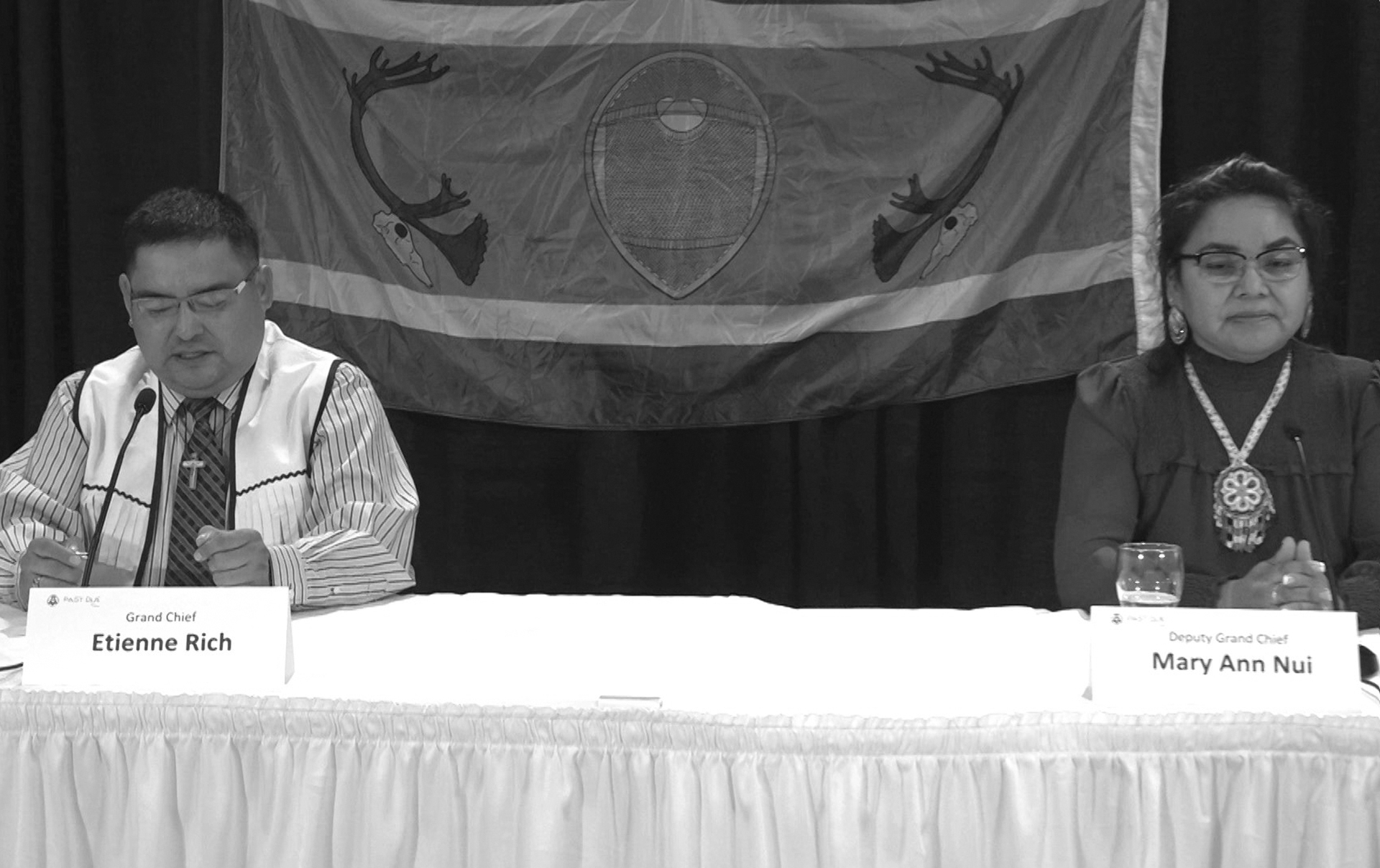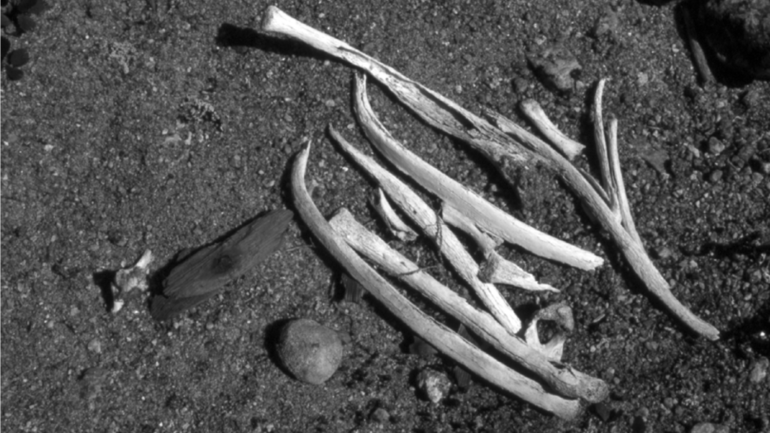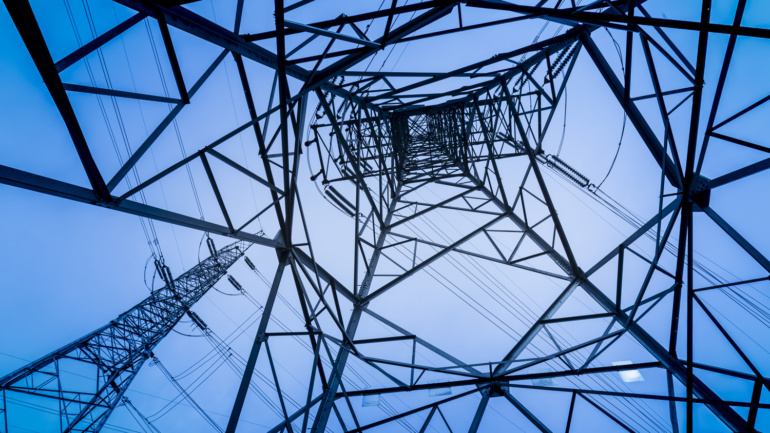GRAND CHIEF ETIENNE RICH
Grand Chief speaks in Innu-aimun
Welcome to everyone who has joined us today from within our Innu communities and across Canada.
This is an important announcement for Innu.
I am pleased to be here today as the recently-elected Grand Chief of the Innu Nation of Labrador. With me is my colleague, Deputy Grand Chief Mary Ann Nui.
Our government is responsible for the protection, promotion and advancement of the legal, constitutional and Aboriginal rights of the Innu of Labrador. That is why we are here today.
We are announcing that the Innu Nation of Labrador has filed a $4 billion claim against Hydro-Québec, in the Supreme Court of Newfoundland and Labrador.
This is compensation for the illegal taking of our land in 1969 to build the Churchill Falls hydro-electric project.
This project was built on land that forms part of the land claim of the Innu Nation. The Innu Nation is negotiating our land claim with Newfoundland and Labrador and Canada.
We are Innu and our people have lived on the Québec-Labrador Peninsula, which we call Nitassinan, for thousands of years.
We were, and remain, hunters with a deep connection to the land.
Before we were forced to settle into communities in Labrador in the 1950s, our way of life involved travelling across Nitassinan in family groups to hunt, fish, gather, and trade. We would come together for trade and cultural events at important gathering places, like the Meshikamau Lake area, in the interior of Labrador.
The area was rich in fish and wildlife.
It was on the migration path of two herds of Atiku. Atiku is caribou. The Atiku are central to our identity and culture.
Meshikamau is the location of Petshishkapushkau, an important spiritual site for our people.
Petshishkapushkau is a rocky hill.
It is the spiritual place where Anikapeu, an animal master, lives.
The Meshikamau area was also a place where we buried our dead.
The river flowing through and from the Meshikamau Lake is called Mista-shipu. Joey Smallwood decided to rename it the Churchill River.
Innu call that river, Mista-shipu. It will always be Mista-shipu.
It is the longest river in Labrador.
It is critical to our way of life.
It was an important travelling route for the Innu.
It was home to a majestic waterfall known in English as Churchill Falls.
It was so powerful before they built the dam.
Our elders, many of whom have passed away, experienced terrible loss after the Churchill Falls generating station was built.
We have heard the stories from our elders about how they used to enjoy the Meshikamau area.
Those elders included people such as Pien-Joseph Selma, Shimun Gregoire, Mani Pinette, Matiu Ben Andrew, Manian Ashini, Shimun Michel, Penash Andrew, Matinen Selma, Ishpashtien Nuna, Mani-Pinamen Michel, Mani-Aniesh Nuna, Enum Abraham, Mani-Matnen Abraham, Manian Michel, Shushep Nuna, Mani Tuma and many others.
We need to honour those elders.
Our elders suffered. They lost so much. We feel that loss today. We inherited that loss. It is time to make that right.
The massive flooding to create the Smallwood Reservoir means that land can never be enjoyed by my generation.
But it is not just lost to my generation. It is also lost to our children and our grandchildren and our great -grandchildren.
The impact of Churchill Falls has been felt across generations of Innu.
What happened was not right. Our elders deserved better treatment then, and we demand better treatment now.
We have a short video to share with you, please listen to what they say and hopefully you will understand our grief.

DEPUTY GRAND CHIEF MARY ANN NUI
Speaks in Innu-aimun
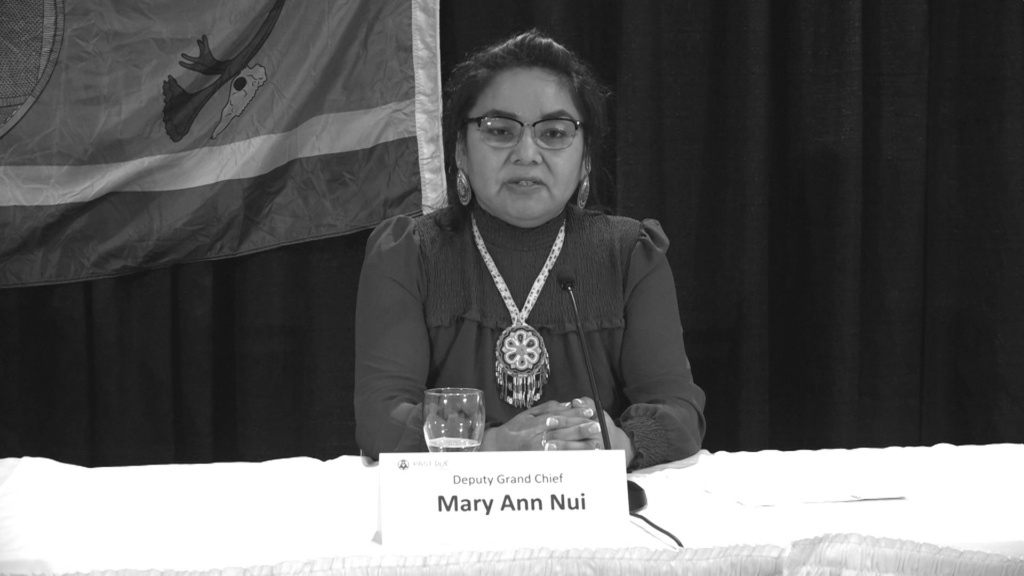
Thank you Grand Chief. We just heard our Elder, Elizabeth Penashue, who has walked many miles to bring attention to Innu, our culture and the importance of our environment. You heard Basile Penashue speak about the spiritual importance of the land. I hope it has helped you understand, even a little, what was done to us.
Construction of the Churchill Falls Generating Station started in the late sixties and finished in 1974.
At the time, it was the second-largest hydro-electric project of its kind in the world.
The project transformed the upper Churchill River into a massive, 6,527 square kilometre reservoir, causing the flooding of an area of our Innu homelands larger than Prince Edward Island.
Damming the Falls and flooding the lakes above them destroyed the Meshikamau area’s waters and lands.
It destroyed our use of the area.
It destroyed the habitats of animals living there.
Innu whose families had hunted in the region for generations lost their canoes, traps, Atiku (caribou) hide scrapers, and other tools that they stored in caches along the river’s edges.
Beaver in the headwater ponds froze to death because of reduced water levels.
Salmon spawning grounds were destroyed.
Fish living in the Reservoir have been poisoned.
Atiku calving grounds and waterfowl nesting areas were drowned.
We also lost the bones of our ancestors.
Their burial grounds are now underwater.
Can you imagine not knowing that this was going to happen in a place where you lived? Can you imagine not understanding the extent of the damage that was going to happen?
Innu were not consulted about this flooding, and we certainly did not consent to it.
In fact, we were not even told when the flooding would begin, or how much the water would rise.
I want to share a story with you about one of our past leaders. His name is Daniel Ashini.
He was a Grand Chief of the Innu Nation and a senior land rights negotiator.
Daniel passed away little more than ten years ago at a relatively young age, he was only 49.
He was a strong voice for Innu people, and he spoke many times about the harm that was done to our people and to the land.
In an interview Daniel said:
Our first experience with industrial development was with the Churchill Falls power project. We were never consulted or compensated for this use of our land — in fact, we were never even told that below the dam the Churchill River would be reduced to a trickle, that Churchill Falls would cease to exist, and that our canoes, camps, trap lines, hunting grounds and our ancestors’ burial sites would be drowned forever by the Smallwood Reservoir.
DANIEL ASHINI, FORMER GRAND CHIEF OF INNU NATION, 2007
Daniel also said he had visited a site at the edge of the reservoir with two archaeologists and his uncle.
He saw that the reservoir had eroded a hillside and uncovered some Innu graves.
Like Daniel, we heard of these stories from people in our communities.
For Daniel, when he saw those graves it really sunk in what had happened.
He was very sad to see that those graves had been destroyed, and he moved the remains to higher ground to rebury them.
He said that it was completely unforgivable in his opinion.
Our young people and our elders in both Natuashish and Sheshatshiu know about these terrible impacts. The injustice is still raw for all of us.
GRAND CHIEF ETIENNE RICH
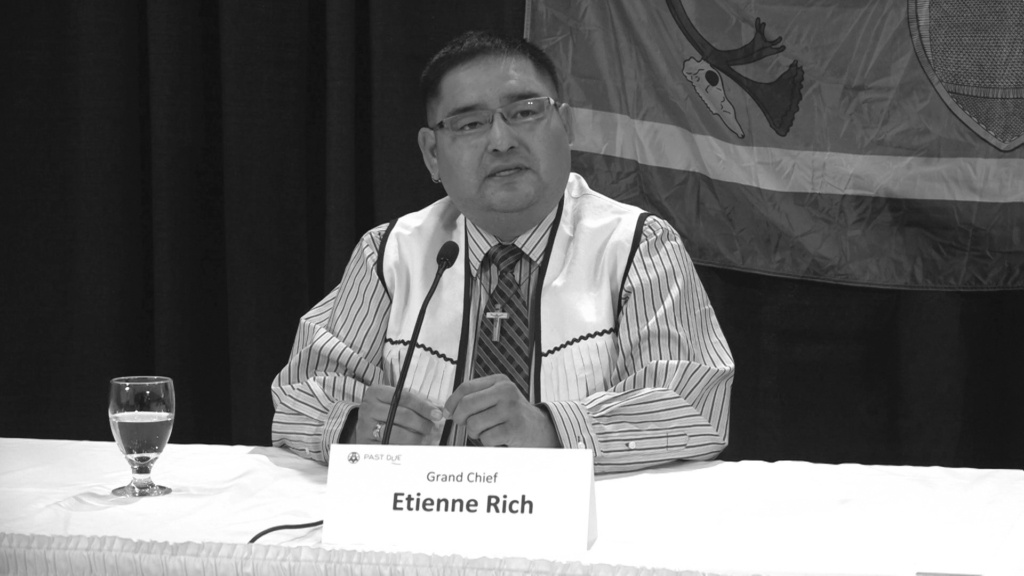
Thank you, Deputy Grand Chief. We know what Daniel said is true, and we know who must be held accountable.
The Churchill Falls project was built by the Churchill Falls Labrador Corporation.
This company has only 2 shareholders, Hydro-Québec and Nalcor Energy.
Those two companies are responsible for what happened to our land.
Nalcor already reached an agreement to partially compensate us.
It is Hydro Quebec’s turn now.
Hydro-Québec is entitled to almost all of the power that comes out of the Churchill Falls project because of the 1969 power contract .
That contract will remain in place at least until 2041.
Many Newfoundlanders and Labradorians are angry about that contract for many reasons.
The Innu are angry too, because Hydro Quebec destroyed so much of our land.
The energy from Churchill Falls equals almost the entire amount of energy that Hydro-Québec exports to the United States.
Hydro Quebec has made billions of dollars from that contract.
But it has not paid us a single penny for the damage done to our land, or to the damage to our way of life and to our people.
The past 50 years have been very hard for my people. For the longest time we grieved over the loss of our traditional territory. We also faced denial of respect for our aboriginal rights as Innu. This caused many social challenges and economic hardships for us. But now we have turned our despair into our resolve to address this major injustice.
That is why the Innu of Labrador are now seeking compensation from Hydro-Québec for the cultural and environmental destruction caused by the massive Churchill Falls hydro project.
We have tried many times to speak with them. They refuse to talk to us.
We are extremely disappointed in Hydro-Québec’s refusal to take responsibility for what they have done to our people and our land.
They should have agreed long ago to compensate us for the damage they caused.
All I can say is, it is time for Hydro-Québec to pay up. It is fifty years past due.
CLOSING REMARKS – GRAND CHIEF ETIENNE RICH
In closing, I want to thank you for joining us. We hope that you understand why we are seeking compensation from Hydro-Quebec. Your support is important and we invite you to be a part of this with us. More information will be available on our website and through social media. Innu of Labrador also want to acknowledge the death of Joyce Echaquan in Quebec. We share your shock and your sorrow for the circumstances surrounding her death and offer our sincere condolences to her family.
Thank you.


